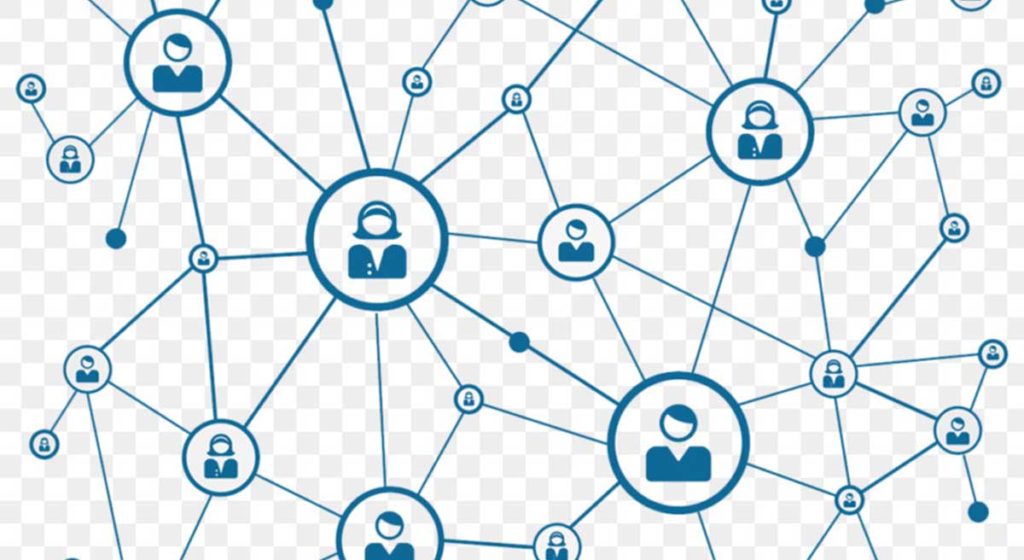My previous articles set the foundation for today’s topic. The fourth industrial revolution (Industry 4.0) is imminent and manufacturing organizations have the potential to enable transparency, connectivity, faster decision making and deliver enormous benefits regarding downtime, defects, inventory, equipment, energy, etc. All this sounds exciting and promising nonetheless there is still a lot of concern, skepticism, and fear of failure.
In my How to Learn from Failures article, the key message is that for companies to be successful in their digital transformation efforts, leaders need to use failures to learn. A lot of patience, experimentation, and willingness to start small to go then big and fast are crucial to getting on the high speed of technology innovation and change that is disrupting the business environment at an unprecedented rate.

Ecosystem and Collaboration
Digital Disruption is inevitable, and competitiveness depends on the willingness and ability to get on the fast pacing and exhilarating ride. The winners will be those leaders and organizations that understand that to navigate the complicated waters of disruption; they cannot go at it alone. They need to see themselves coexisting and collaborating in an ecosystem (a complex network or interconnected system).
More and more manufacturing companies, technology companies, academia, and government are forming consortiums to figure out how to live in a very disrupted world. One of the most important elements they work on is industry standards, evaluation of technologies, the impact to society. The primary goal is to accelerate adoption for the benefit of businesses, consumers, and communities. I have participated with groups such as the Digital Manufacturing and Design Innovation Institute (DMDII) at UI Labs in Chicago where they develop solutions to manufacturing challenges that focus on:
- Design, Product Development, and Systems Engineering
- Future Factory
- Agile, Resilient Supply Chain
- Cybersecurity in Manufacturing
One of the major coalitions in this space got announced in May, the Mobility Open Blockchain Initiative (MOBI), formed by BMW, Ford, General Motors and Renault with tech providers and startups to focus on applying blockchain technology in the automotive industry.

Blockchain
Most people have heard of Blockchain as it relates to Bitcoin, the cryptocurrency, and that was the genesis. A blockchain is a digitized, decentralized, public ledger. The blockchain has the potential to impact a range of industries. MOBI said its scope of focus varies from payments, data tracking, and supply management, to consumer finance and pricing, and more futuristic areas like autonomous vehicles and ride-sharing systems.
In May, the Wall Street Journal reported that blockchain adoption by corporations is at the earliest stage, according to a survey from Gartner Inc. only 1% of 3,138 CIOs at companies surveyed last year said they had “any kind of blockchain adoption” within their organizations. It is good news that the auto industry has decided to join efforts and not give up on it and entirely risk being left behind.
CB Insights reported that as of late April, “blockchain” was mentioned close to 300 times on 1Q18 earnings calls. Among other things, this indicates that corporates and analysts are talking about this technology with real interest.
MOBI aims to “foster an ecosystem where businesses and consumers have security and sovereignty over their driving data, manage ride-share and car-share transactions, and store vehicle identity and usage information.”
They will form project teams for areas such as vehicle identity and data tracking; ride sharing; mobility ecosystem commerce; and data markets for autonomous and human driving.
How can Blockchain transform industries
According to CB Insights, Blockchain could transform many more industries. Ultimately, the use cases for a transparent, verifiable register of transaction data are practically endless since blockchain operates through a decentralized platform requiring no central supervision, making it resistant to fraud.
In the case of the auto industry, some examples include:
- Supply Chain: with blockchain, as products change hands across a supply chain from manufacture to sale, the transactions can be documented in a permanent decentralized record — reducing time delays, added costs, and human errors.
- Ride Sharing: Ride apps like Uber and Lyft represent the opposite of decentralization, since they mostly operate as dispatching hubs and use algorithms to control their fleets of drivers (and dictate what they charge). Blockchain could inject new options into that dynamic: with a distributed ledger, drivers and riders could create a more user-driven, value-oriented marketplace.
- Additive Manufacturing (3D printing): highly technology-driven processes, whereby the digital files involved can be quickly sent with the click of a mouse. Consequently, parts and products are easier to share and track — leading to smarter digital supply networks and supply chains.
Are you thinking of digital transformation in your company? Would you like some assistance with your strategy and plan of actions? Contact me. As an executive coach and business consultant, I help leaders and organizations navigate through an unprecedented amount of complexity and speed of change – develop strategies to ensure human readiness and be successful in the process of digital transformation.
I would like to know your thoughts on this topic and have you share it with your community and connections. Thank you for reading and sharing.




